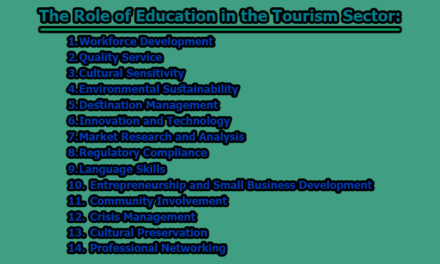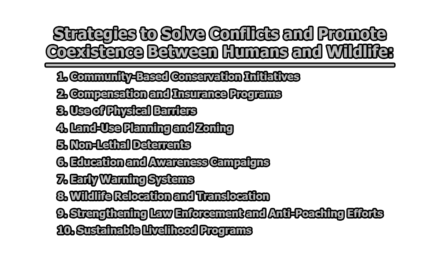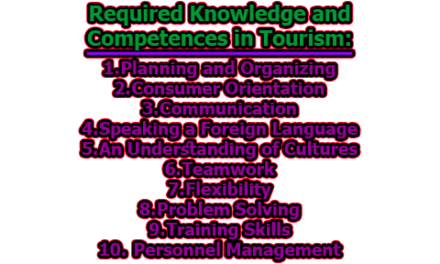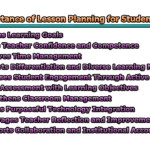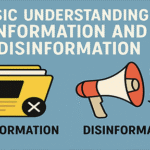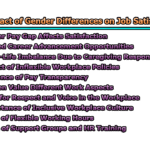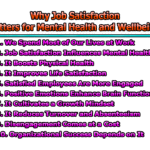An Overview of the Hospitality Management:
Hospitality management is a captivating blend of art and science, where the goal is to craft unforgettable experiences for guests while maintaining the seamless operation of diverse businesses. From the grandeur of five-star hotels to the intimacy of neighborhood bistros, hospitality management is the linchpin that ensures guests feel at home and cherished during their visits. In this article, we are going to provide an overview of the hospitality management, exploring its nuances, qualifications, responsibilities, and career prospects.
Understanding Hospitality Management:
Hospitality management is a dynamic and multifaceted field that revolves around creating exceptional guest experiences while ensuring the seamless operation of a diverse range of businesses, including hotels, restaurants, resorts, and more. At its core, hospitality management is about nurturing comfort and excellence, where the ultimate goal is to make guests feel at home and cherished during their visits. It encompasses various roles and responsibilities, from overseeing budgets and managing staff to innovating for business growth and staying abreast of evolving industry trends. With a wide array of career opportunities, including hotel management, restaurant management, event planning, and more, hospitality management offers a world of possibilities for those who seek to excel in this captivating industry. Whether adapting to the latest technology trends or navigating unprecedented challenges, hospitality management remains an ever-evolving and rewarding profession.
Qualifications for Hospitality Management:
Qualifications for a career in hospitality management can vary depending on the specific role and the level of responsibility. Generally, a combination of education, training, and practical experience is essential to succeed in this field. Here are the typical qualifications for hospitality management:
1. Education: Many individuals begin their journey into hospitality management by earning a degree in the field. While some entry-level positions may require only a high school diploma or equivalent, higher-level managerial roles often necessitate at least an associate’s or bachelor’s degree. These degrees can be in hospitality management, hotel management, tourism management, or a related field.
2. Certifications: Some specialized roles within hospitality management may require certifications. For example, becoming a Certified Hotel Administrator (CHA) or a Certified Hospitality Supervisor (CHS) can enhance your qualifications for hotel management positions. Certifications may also be required for positions in areas like food safety or event planning.
3. Experience: Practical experience is highly valued in hospitality management. Many employers prefer candidates who have worked in various roles within the industry to gain a deep understanding of how different departments operate. Internships, part-time jobs, and entry-level positions in hotels, restaurants, or event planning companies can provide valuable experience.
4. Skills: Successful hospitality managers possess a range of skills, including excellent communication, leadership, problem-solving, and customer service abilities. Financial management skills, including budgeting and revenue management, are also crucial. Adaptability and a strong work ethic are essential traits in this fast-paced and ever-changing industry.
5. Networking: Building a professional network within the hospitality industry can open doors to career opportunities. Attending industry conferences, joining associations like the American Hotel & Lodging Association (AH&LA), and connecting with mentors and peers in the field can be invaluable for career advancement.
6. Continuing Education: Given the dynamic nature of the hospitality industry, ongoing learning is essential. Professionals often engage in continuing education programs, attend workshops, and stay updated on industry trends to remain competitive and relevant in their roles.
The Role of a Hospitality Manager:
The role of a hospitality manager is multifaceted and dynamic, as it involves overseeing the daily operations of establishments in the hospitality industry, such as hotels, resorts, restaurants, event venues, and more. A hospitality manager plays a pivotal role in ensuring the seamless functioning of the business while prioritizing the comfort and satisfaction of guests. Here’s a brief breakdown of the responsibilities and key functions of a hospitality manager:
- Overall Operations Oversight:
- Strategic Planning: Develop and implement strategic plans to achieve business objectives, including revenue targets and long-term growth strategies.
- Market Analysis: Conduct thorough market research to identify industry trends, competitive landscapes, and opportunities for expansion.
- Facility Maintenance: Ensure that the physical condition of the establishment is well-maintained, addressing any repairs or upgrades promptly.
- Supply Chain Management: Oversee procurement, manage supplier relationships, and maintain an efficient supply chain for goods and services.
- Budget Management: Prudently allocate resources, control expenses, and monitor budgets to ensure profitability.
- Staff Management:
- Team Development: Foster a positive workplace culture, provide training opportunities, and support career growth for employees.
- Recruitment and Training: Oversee the recruitment process, hire talented individuals, and provide comprehensive training to staff members.
- Conflict Resolution: Skillfully address conflicts and disputes among team members to maintain a harmonious work environment.
- Motivation: Inspire and motivate the team to deliver exceptional service by recognizing and rewarding outstanding performance.
- Staff Retention: Implement strategies to retain talented employees, reduce turnover rates, and cultivate a loyal workforce.
- Guest Services:
- Personalization: Customize services to meet individual guest preferences, creating a personalized and memorable experience.
- Guest Feedback: Actively encourage and gather feedback from guests through surveys, reviews, and direct communication to continuously enhance services.
- Guest Loyalty Programs: Implement loyalty programs and initiatives to incentivize repeat business and build a loyal customer base.
- Event Coordination:
- Event Planning: Collaborate with event planners to ensure all aspects of an event, from catering to logistics, run seamlessly.
- Resource Allocation: Efficiently allocate staff, equipment, and resources for various events, optimizing costs and service quality.
- Vendor Management: Work closely with vendors and suppliers to secure necessary resources for events and negotiate favorable contracts.
- Health and Safety Compliance:
- Training: Ensure all staff members are well-trained in health and safety protocols and procedures.
- Emergency Response Plans: Develop and regularly test emergency response plans to safeguard guests and employees.
- Regulatory Updates: Stay informed about changes in health and safety regulations and adapt operations accordingly to remain compliant.
- Innovation and Improvement:
- Guest Surveys: Utilize guest feedback and surveys to identify areas for improvement and innovation.
- Technology Integration: Explore opportunities to integrate technology, such as mobile apps or self-check-in kiosks, to enhance the guest experience.
- Sustainability Initiatives: Implement eco-friendly practices and sustainable initiatives to reduce the establishment’s environmental impact and appeal to environmentally conscious guests.
- Marketing and Promotion:
- Digital Marketing: Leverage digital marketing channels, including social media, email marketing, and SEO, to reach a wider audience and drive bookings.
- Customer Relationship Management (CRM): Utilize CRM tools to segment customers, personalize marketing messages, and nurture customer relationships.
- Promotions and Packages: Create attractive promotions, packages, and loyalty incentives to attract new customers and retain existing ones.
- Financial Management:
- Financial Analysis: Regularly review financial statements, analyze key performance indicators (KPIs), and adjust strategies based on data to maintain profitability.
- Cost Control Measures: Implement cost-saving measures without compromising service quality, such as energy efficiency initiatives or waste reduction programs.
- Forecasting: Utilize data-driven forecasting to predict demand patterns and adjust pricing and inventory accordingly to optimize revenue.
- Crisis Management:
- Emergency Response Plans: Develop detailed emergency response plans, including evacuation procedures and communication protocols, to ensure guest and employee safety during crises.
- Communication: Establish clear communication channels with staff and guests during emergencies, providing timely updates and guidance.
- Business Continuity: Develop business continuity plans to ensure the organization can continue operating during and after a crisis, minimizing disruptions.
Effective hospitality managers are adaptable, innovative, and dedicated to delivering exceptional service while ensuring the business’s success and sustainability. They navigate a complex landscape, balancing the needs of guests, staff, and the organization to create memorable experiences and drive growth in a competitive industry.
Diverse Career Opportunities in Hospitality Management:
Hospitality management offers a diverse range of career opportunities within an ever-expanding industry. Whether you’re interested in working in hotels, restaurants, event planning, travel, or other related sectors, a degree in hospitality management can open doors to numerous exciting career paths. Here’s a closer look at some of the diverse career opportunities available in hospitality management:
- Hotel Management:
- General Manager: Oversee all aspects of hotel operations, from guest services and staff management to budgeting and strategic planning.
- Front Office Manager: Manage reception, reservations, and guest services to ensure a seamless check-in and check-out experience.
- Sales and Marketing Manager: Develop marketing strategies, attract clients, and drive revenue through sales efforts.
- Food and Beverage Manager: Manage restaurant and catering operations, ensuring high-quality food and service.
- Restaurant Management:
- Restaurant Manager: Oversee daily restaurant operations, including staff management, customer service, and profitability.
- Sommelier: Curate wine lists, advise customers on wine pairings, and manage the wine program at fine-dining establishments.
- Chef: Lead the kitchen, create menus, and ensure the quality and consistency of food served.
- Bar Manager: Manage bar operations, including beverage selection, staff training, and customer satisfaction.
- Event Planning and Management:
- Event Planner: Plan and coordinate weddings, conferences, meetings, and other special events for clients.
- Convention Services Manager: Work in hotels and convention centers to assist with event logistics and coordination.
- Wedding Planner: Specialize in planning and coordinating weddings, managing every detail to ensure a perfect day.
- Travel and Tourism:
- Travel Agent: Assist clients with travel bookings, itineraries, and vacation packages.
- Tour Operator: Create and organize tours, excursions, and travel packages for tourists.
- Cruise Director: Oversee onboard activities and entertainment on cruise ships, ensuring an enjoyable experience for passengers.
- Resort Management:
- Resort Manager: Manage all aspects of a resort, from accommodations and amenities to guest experiences and staff management.
- Spa Manager: Oversee spa operations, including treatments, staff, and customer satisfaction.
- Recreation Manager: Coordinate and manage recreational activities and facilities at resorts.
- Hospitality Finance and Administration:
- Financial Controller: Manage financial aspects of hospitality establishments, including budgeting, accounting, and financial reporting.
- Human Resources Manager: Oversee staffing, training, and employee relations within the hospitality industry.
- Revenue Manager: Optimize revenue through pricing strategies, yield management, and demand forecasting.
- Casino Management:
- Casino Manager: Manage casino operations, including gaming tables, slot machines, and staff.
- Security Director: Ensure the safety and security of guests and assets within a casino.
- Catering and Banquet Management:
- Catering Manager: Oversee catering services for events, weddings, and corporate functions.
- Banquet Manager: Coordinate and manage banquet events within hotels and event venues.
- Hospitality Consultant: Provide expertise and advice to hospitality businesses on various aspects, from operations and marketing to management strategies.
- Entrepreneurship: Start your own hospitality-related business, such as a boutique hotel, restaurant, or event planning company.
- Sales and Marketing: Work in sales and marketing roles for hospitality companies, promoting their services and products to potential customers.
- Corporate Management: Some hospitality management graduates pursue corporate roles in multinational hotel chains, overseeing multiple properties and regions.
The hospitality industry is known for its flexibility and diverse career paths, offering opportunities for individuals with a wide range of interests and skills. Whether you have a passion for customer service, a flair for event planning, or a head for finance, there’s likely a hospitality management career that aligns with your strengths and interests. Moreover, the global nature of the industry allows for international career prospects and the chance to work in exciting destinations around the world.
Exploring Hospitality Management Operations:
Exploring hospitality management operations provides insight into the intricate workings of the hospitality industry. These operations encompass a wide range of activities and strategies aimed at delivering exceptional guest experiences while ensuring the efficient and profitable functioning of various establishments within the industry. Let’s delve into the key aspects of hospitality management operations:
- Resource Management:
- Personnel Management: Efficiently manage staff members across different departments, including hiring, training, scheduling, and performance evaluations.
- Inventory Control: Monitor and manage inventory levels of food, beverages, supplies, and equipment to minimize waste and control costs.
- Financial Management: Oversee budgeting, revenue management, and financial analysis to ensure the organization’s fiscal health.
- Asset Management: Manage physical assets, such as furniture, fixtures, and equipment, to maximize their lifespan and utility.
- Guest Services and Experience:
- Front-of-House Operations: Ensure a seamless check-in and check-out process, concierge services, and a welcoming atmosphere for guests.
- Concierge Services: Assist guests with reservations, recommendations, and requests to enhance their overall experience.
- Quality Assurance: Maintain high standards of service, cleanliness, and safety to provide guests with a positive and memorable stay.
- Food and Beverage Operations:
- Restaurant Management: Oversee restaurant operations, including menu planning, food preparation, service quality, and ambiance.
- Beverage Management: Curate wine lists, craft cocktail menus, and manage bar operations to enhance the dining experience.
- Catering and Banquets: Coordinate and execute catering services for events, weddings, and corporate functions.
- Event Planning and Coordination:
- Event Logistics: Plan and coordinate events, conferences, weddings, and meetings, handling everything from venue selection to catering and audiovisual setups.
- Venue Management: Manage event spaces within hotels and event venues, ensuring they meet clients’ needs and exceed expectations.
- Revenue Management:
- Pricing Strategies: Implement pricing strategies to optimize revenue, including dynamic pricing, packages, and discounts.
- Yield Management: Adjust room rates and availability based on demand and market conditions to maximize revenue.
- Demand Forecasting: Use data-driven insights to predict demand patterns and adjust inventory accordingly.
- Technology Integration:
- Property Management Systems (PMS): Implement PMS software to streamline reservations, check-ins, check-outs, and guest communication.
- Online Booking Platforms: Utilize online booking platforms and websites to attract guests and facilitate easy reservations.
- Customer Relationship Management (CRM): Use CRM tools to personalize guest interactions, nurture relationships, and drive repeat business.
- Sustainability Initiatives:
- Eco-Friendly Practices: Implement green and sustainable practices, such as energy-efficient lighting, waste reduction, and eco-friendly amenities.
- Environmental Certifications: Pursue certifications like LEED (Leadership in Energy and Environmental Design) to showcase commitment to sustainability.
- Health and Safety Compliance:
- Safety Protocols: Develop and enforce health and safety protocols to protect guests and staff, especially during pandemics or emergencies.
- Regulatory Compliance: Stay informed about and adhere to industry regulations, including food safety, fire safety, and sanitation standards.
- Marketing and Promotion:
- Digital Marketing: Leverage digital channels, social media, and email marketing to reach a broader audience and promote the establishment.
- Customer Engagement: Engage with customers through loyalty programs, promotions, and personalized marketing messages to build lasting relationships.
- Crisis Management:
- Emergency Response: Establish emergency response plans, including evacuation procedures and communication protocols, to ensure guest and staff safety.
- Business Continuity: Develop business continuity plans to maintain operations during crises and minimize disruptions.
- Guest Feedback and Improvement:
- Feedback Collection: Actively collect guest feedback through surveys, reviews, and direct communication to identify areas for improvement.
- Continuous Innovation: Seek opportunities for innovation and improvement to enhance the guest experience and stay competitive.
Exploring hospitality management operations unveils the intricate balance of customer service, financial acumen, and operational efficiency required to excel in this dynamic industry. Effective operations management is the cornerstone of a successful hospitality establishment, where every detail, from the guest’s arrival to their departure, is meticulously orchestrated to create memorable experiences and ensure the long-term success of the business.
Different Management Types within the Hospitality Sector:
Within the hospitality sector, several specialized management types exist, three of which are particularly noteworthy:
1. Restaurant Management: This discipline involves overseeing businesses in the restaurant industry, covering daily operations, employee management, financial planning, stock management, and more.
2. Hotel Management: Focused on managing accommodations such as hotels, motels, hostels, and bed-and-breakfasts, hotel management includes supervising core operations, departments, staff, finances, and strategic planning.
3. Revenue Management: Revenue management is a critical component of hospitality management, centered on optimizing financial outcomes, especially revenue generation. By leveraging data-driven insights, revenue managers make informed decisions about pricing and product offerings to maximize profitability. This involves understanding customer demand, timing, and pricing strategies.
Navigating the Landscape of Hospitality Marketing Trends:
Marketing is pivotal in building a strong brand and fostering customer loyalty in the hospitality industry. The sector relies heavily on digital and print media to reach and engage guests. Staying abreast of the latest hospitality marketing trends is essential for success in this competitive field. A robust marketing strategy can elevate a business’s profile and create lasting impressions in the minds of customers.
Keeping Up with Evolving Hospitality Trends:
The hospitality industry is in a perpetual state of evolution, driven by global travel trends, technological advancements, and changing consumer preferences. New hotels, restaurants, and innovative business models continually emerge to meet the growing demand for unique experiences. Staying informed about the latest hospitality trends is essential for industry professionals looking to thrive in this dynamic environment.
Harnessing Technology Trends in Hospitality:
Technology plays a pivotal role in enhancing the guest experience in the hospitality sector. From management software simplifying tasks to cutting-edge apps and software, the industry continually integrates technology to improve operations and guest satisfaction. Staying attuned to technology trends is crucial for hospitality professionals seeking a competitive edge.
Pursuing Education in Hospitality:
Education is a stepping stone to success in hospitality management. Many accomplished managers have completed hospitality courses, equipping them with the skills and knowledge needed to excel in their roles. Institutions worldwide offer various courses tailored to the diverse needs of aspiring hospitality professionals.
Navigating the Impact of COVID-19 on Hospitality Management:
The COVID-19 pandemic has reverberated through the hospitality sector, disrupting operations, and challenging the resilience of businesses. Lockdown measures, event cancellations, reduced travel, and economic uncertainty have significantly impacted hotels, restaurants, and related establishments. Businesses have grappled with revenue losses and operational hurdles, emphasizing the need for adaptability and innovation in these trying times.
In conclusion, hospitality management is a multifaceted and ever-evolving field that offers a broad spectrum of career opportunities. It requires a blend of creativity, strategic thinking, and operational expertise to deliver exceptional guest experiences. As the industry continues to adapt to changing trends and challenges, individuals in hospitality management must stay informed, agile, and committed to providing unparalleled service and comfort to their guests. Whether it’s mastering the latest technology trends or navigating the impact of global events, hospitality management remains a dynamic and rewarding profession.

Assistant Teacher at Zinzira Pir Mohammad Pilot School and College



